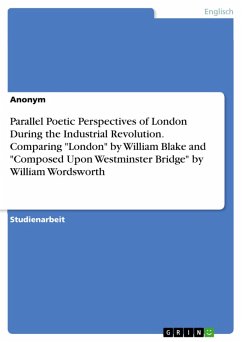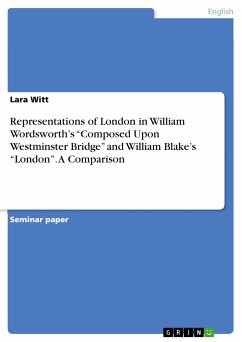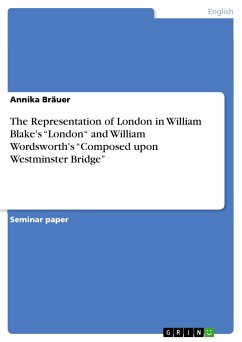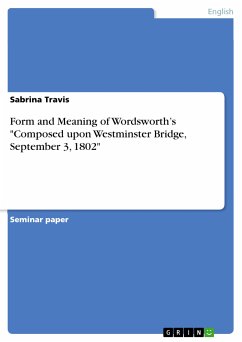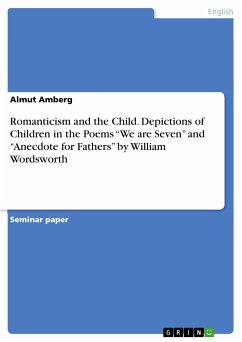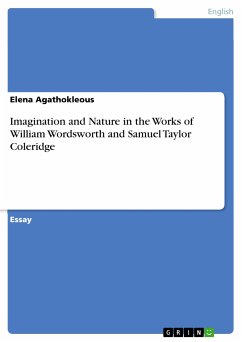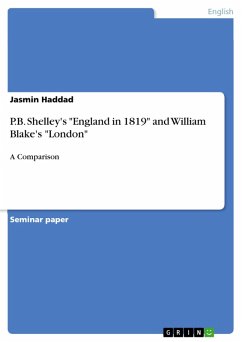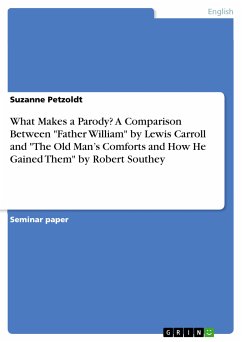Studienarbeit aus dem Jahr 2014 im Fachbereich Anglistik - Literatur, Note: 1,3, Johannes Gutenberg-Universität Mainz (British Studies), Veranstaltung: Proseminar I- British Studies- Romantic Texts and Contexts, Sprache: Deutsch, Abstract: Nowadays millions of tourists visit the city of London every year. It is an attraction for people from all over the world, and they picture it as a wonderful city. However, it took some time for it to become as popular as it is today. Already during the 18th century, many poets were inspired by the overall impression of London. Two important poems dealing with the attitude towards the city during the beginnings of the Industrial Revolution are William Blake's "London" and William Wordsworth's "Composed Upon Westminster Bridge, September 3, 1802". On the whole, Blake's "London" displays a negative picture of London, focusing on the individual inhabitants. As a result, the critic Punter underlines the fact of its rapid expansion and chaotic structure. Wordsworth therefore rather employs an aesthetic approach and positively connotates and personifies the city itself. When comparing and contrasting both poems, similar and differing aspects can be taken into consideration, due to questioning the image of the city of London during the Industrial Revolution. The following provides you with a brief analysis of both poems, but especially goes into depth comparing and contrasting the images of the city of London.
Dieser Download kann aus rechtlichen Gründen nur mit Rechnungsadresse in A, B, BG, CY, CZ, D, DK, EW, E, FIN, F, GR, HR, H, IRL, I, LT, L, LR, M, NL, PL, P, R, S, SLO, SK ausgeliefert werden.

